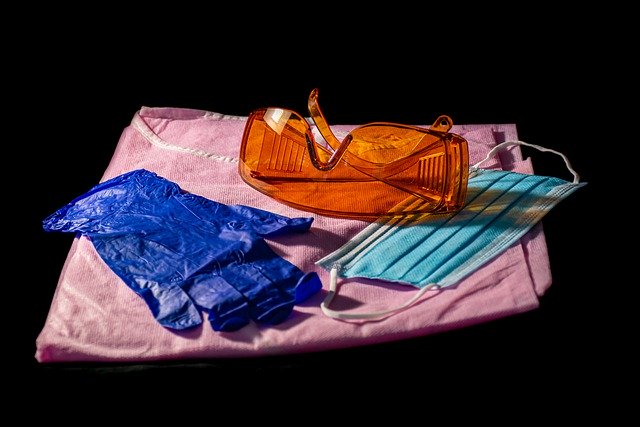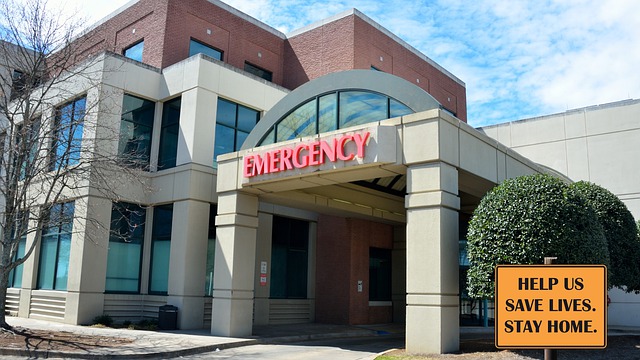
5 Tips for Helping Seniors and the Elderly Plan for and Adjust to Hospital Stays
For young and old alike, it’s never easy being sick. Making doctors’ appointments and adhering to treatments can be challenging for us all, but, for seniors and the elderly, the process can be overwhelming at best. For example, it can be scary for seniors or the elderly, particularly if they are going to be hospitalized or treated for the first time, moreover, it is really important that you check yourself facilities like shower grab rails that are really important for the elderly.
But, friends and loved ones can help in so many ways. You can assist seniors and your elderly family members by helping to schedule appointments, accompanying them on visits, and even working with doctors and other health care professionals to get them admitted to hospital for tests, surgery, and other intensive treatment.

What else can you do? Check out these 5 Tips for Helping Seniors and the Elderly Adjust to Hospital Stays. Important ways that loved ones can ease the transition for seniors and the elderly.
- Assemble medical paperwork. Make sure your senior and elderly loved one has assembled his or her medical paperwork. This includes information on medical conditions, medications, primary care doctors, specialists, Medicare and supplemental health insurance and prescription drug coverages, and so forth. Summarize individual and family medical history on one page. Have another page for medication and dosages. Finally, have one page devoted to the names and contact information for his or her primary care physicians and specialists. Find out if your loved one has advance medical directives, power of attorney, and other legal documents.
- Make appointments for hospital admissions, including blood work, other tests. Don’t wait until the last moment to schedule an appointment with hospital admissions. Make sure your senior or elderly family member schedules an appointment with hospital admissions well in advance of hospitalization. Often, the hospital will require blood work and another testing in advance of admission. Keep this paperwork handy, along with the other paperwork on your senior and elderly family members.
- Pack a few things for admission. Your senior or elderly family member should only pack the basics for their hospital admission. The hospital admissions staff can help you and your loved one figure out what’s appropriate to bring. For example, you might include a change of clothes, easy on/off pajamas, slippers, toothbrush and toothpaste, brush or comb, and so forth. There’s no need to pack a lot. You may also want to include a magazine or book, magnifying glass for the sight-impaired, eyeglasses, and $5 for daily newspapers, if applicable. Don’t pack anything of value for your elder’s hospital stay.
- Plan for visits. Make it very clear to your senior or elderly loved one how often you will visit and who else will visit. Make sure the hospital staff has been informed of family members who will visit. Make arrangements for clergy and other family members and friends to visit or call, as appropriate. During your visits, keep things upbeat and non-controversial. Try to allay your senior and elderly loved one’s fears about his or her stay, or experiences. Be a good listener. Bring cards and letters of support, and be prepared to read or post them where visible for your loved one.

- When you visit, make it count. When you visit your senior and elderly loved one, it’s important that the nursing and other hospital staff know you’re there. Each time you visit, you’ll want to get an update on the status of the patient and any decisions that need to be made on the patients behalf. Ask the patient how it’s going, what he or she has eaten that day, and whether or not tests have been done or ordered. Open communication will ease their staff and help with the transition from home to hospital and from hospital to home (or another facility.) Reassure the patient about their progress, and be kind and respectful during their stay. Consult with the hospital staff if you notice a change in personality, mood, health status, and so forth. Sometimes, your senior or elderly family member may have an adverse reaction to diet, medication, and other factors involved in their treatment. Keep a close eye on how well you are senior and elderly loved one is adjusting to his or her stay. Consult with your loved one’s patient advocate, health care professional, or case manager on issues relating to comfort, security, treatment, and transitions.





